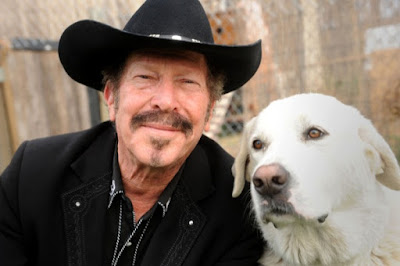Bill Knight column for Mon., Tues. or Wed., June 20, 21 or 22
June isn’t just for weddings. It’s also a time for Parrotheads and Kinkster fans to fall in love with reading.
“Wait, what?”
This month is the 18th anniversary of musician Jimmy Buffett becoming just the sixth author to have titles reach the top of the New York Times best-seller lists for fiction and nonfiction, with the release of his “A Pirate Looks at Fifty” memoir, loosely based on his 1975 song “A Pirate Looks at Forty,” about a Florida bartender buddy.
His novels “Where is Joe Merchant?” and “Tales from Margaritaville” also reached Number 1, too, and follow-up novels “A Salty Piece of Land” and “Swine Not?” were well-received.
There are a surprising number of pop-artist writers. There’s recent nonfiction from Paul Brannigan & Ian Winwood (from Metallica), Alice Cooper, Billy Idol, Scott Ian (Anthrax), Mick Fleetwood, Joe Perry and Neil Young; poetry from Ryan Adams, Jewel and Leonard Cohen (who, besides 13 collections of poetry, wrote the ’60s novels “The Favorite Game” and “Beautiful Losers,” still available); and children’s books by Buffett (“The Jolly Mon,” “Trouble Dolls”), plus Pete Wentz (Fall Out Boy) and even Madonna.
Novels, however, let these creative musicians get really original.
Rick Springfield – who’s said, “Books open up your mind the same way music does. They work your imagination and hit you in a place reality simply does not.” – wrote his debut novel, “Magnificent Vibration” in 2014, four years after his memoir, “Late, Late at Night.” Described by Variety as “a novelist who just happens to be a rock star,” Springfield’s protagonist stumbles on a book with a toll-free number written inside, and he realizes it’s a direct line to God.
Other well-known recording artists have successfully penned memorable fiction as varied as their musical styles: Nick Cave, Ray Davies, Steve Earle, John Wesley Harding, Josh Ritter and Sister Souljah. And there’s “Amplified,” an anthology of 16 pieces of short fiction by a host of indy-rock/alt-country/folk musicians, from Chicago C&Wer Robbie Fulks and folk troubadour Mary Gauthier, to folk/punk’s Jon Langford and bassist/cartoonist Zak Sally.
Twenty years ago, Greg Kihn became a pathfinder of sorts, launching a series of four horror novels with “Horror Show.” Kihn also wrote two dandy murder mysteries, “Rubber Soul” (featuring the character Dust Bin Bob interacting with the Beatles) and “Painted Black” (returning Bob to deal with doomed Rolling Stone guitarist Brian Jones). He also edited “Carved in Rock,” a collection of short stories by rockers including Pete Townshend and Joan Jett.
A personal favorite is Kinky Friedman, perhaps recalled from the 1970s, when he became famous and notorious as the hippie country singer fronting the group Kinky Friedman and the Texas Jewboys (mimicking the great Depression-era country/swing band Bob Wills & His Texas Playboys). Although Kinky’s sound was twang-and-drawl country music, his lyrics weren’t. Less offensive titles include “Lasso from El Paso,” "We Reserve the Right to Refuse Service to You,” "Ride 'Em, Jewboy,” “The Ballad of Charles Whitman,” “The Take-It-Easy Trailer Park,” and "Sold American.”
After his recording career faded, he turned to writing detective novels and cranked out dozens over decades, featuring a fantasy version of himself as an amateur sleuth in New York, aided by a handful of misfits, a cat and an endless supply of cigars and whiskey. Kinky went from a pleasing cross between Will Rogers and Jimmie Rogers to an irreverent, vulgar and hilarious twist on Arthur Conan Doyle and Raymond Chandler.
Throughout the loosely plotted adventures in books such as “The Love Song of J. Edgar Hoover,” “God Bless John Wayne” and “Armadillos and Old Lace,” the Kinkster unleashed a torrent of self-deprecating observations, intoxicated insights and philosophical one-liners. A sampling:
* “He looked like an accountant or a serial-killer type. Definitely one of the service industries.” (from “Elvis, Jesus, and Coca-Cola”).
* “There's a fine line between fiction and non-fiction, and I think I snorted it somewhere in 1979.” (“The Mile High Club”).
* “In New York nobody really regarded anybody as dead. We just thought of them as not currently working on a project.” (“Greenwich Killing Time”).
*“In six days the Lord created the heavens and the Earth and all the wonders therein. There are some of us who feel that He might have taken just a little more time.” (“A Case of Lone Star”).
He’s also published collections of columns, two nonfiction books, a “travelogue” and an “etiquette guide,” but his novels are the most laugh-out-loud fun. And he occasionally shows a soft side, exemplified in a memorable line in the epilogue to “Elvis, Jesus, and Coca-Cola” – “They say when you die and go to heaven all the dogs and cats you've ever had in your life come running to meet you.”
[PICTURED: Kinky Friedman and Muammar, from jewishcurrents.org.]


No comments:
Post a Comment
Note: Only a member of this blog may post a comment.